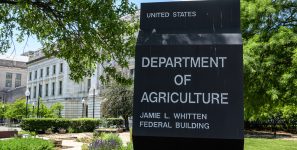WTO Highlights Impact of Illicit Trade on Economic Growth and Public Health
The World Trade Organization (WTO) has emphasized that illicit trade significantly harms societies, stifling economic growth and development. This illegal activity undermines legitimate businesses, fosters corruption, and deprives governments of crucial tax revenue needed for societal investments.
Read also: WTO Forecasts Global Trade Rebound Amidst Challenges and Uncertainties
Under the leadership of Director-General Ngozi Okonjo-Iweala, the WTO Secretariat has been investigating how WTO rules can assist member countries in addressing these challenges. In a recent publication focused on combating illicit trade in medical products, Okonjo-Iweala stressed the necessity of enhancing international cooperation and providing technical assistance to bolster members’ capacities to fight illicit trade.
The WTO has also introduced a new publication on illicit trade in food and food fraud, aiming to clarify the role the organization can play in addressing these issues. This publication leverages insights from various organizations, including the Food and Agriculture Organization of the United Nations, the International Seed Federation, the Transnational Alliance to Combat Illicit Trade, and the United Nations Interregional Crime and Justice Research Institute. It examines the issue from multiple perspectives and suggests strategies for tackling illicit trade in food and food fraud.
“Illicit trade and fraud in the agri-food sector have detrimental effects on stakeholders, including consumers, farmers, agribusinesses, regulators, and other operators within the food industry,” said Okonjo-Iweala. “While the global cost of fraud to the food industry is hard to quantify due to the secretive nature of these activities, estimates range from $30–50 billion annually, excluding losses from illicit trade in alcoholic drinks.”
Illicit trade impacts various segments of society and the economy. It causes economic losses to legitimate businesses through decreased sales and reduced consumer confidence. Governments lose valuable tax revenue and incur costs fighting counterfeit crime and smuggling. Additionally, fraudulent and counterfeit food and beverages pose serious public health risks, as adulterated or contaminated products can have deadly consequences. Even counterfeit products that are harmless but do not contain advertised ingredients defraud customers and erode trust in the food supply chain.
Okonjo-Iweala highlighted that the WTO rulebook provides legal tools to combat illicit trade and food fraud. During the launch event of the publication, new ideas for the WTO’s future steps were discussed. These include collaborating with the World Health Organization (WHO), reviewing government actions through the Trade Policy Review process, and utilizing Aid for Trade discussions to address illicit trade. Other suggestions involved enhancing cross-border customs cooperation, examining the impact of e-commerce on food fraud, and continuing discussions in the Technical Barriers to Trade (TBT) and Sanitary and Phytosanitary (SPS) committees.
She emphasized that implementing these future actions would require the agreement of WTO members.





Leave a Reply